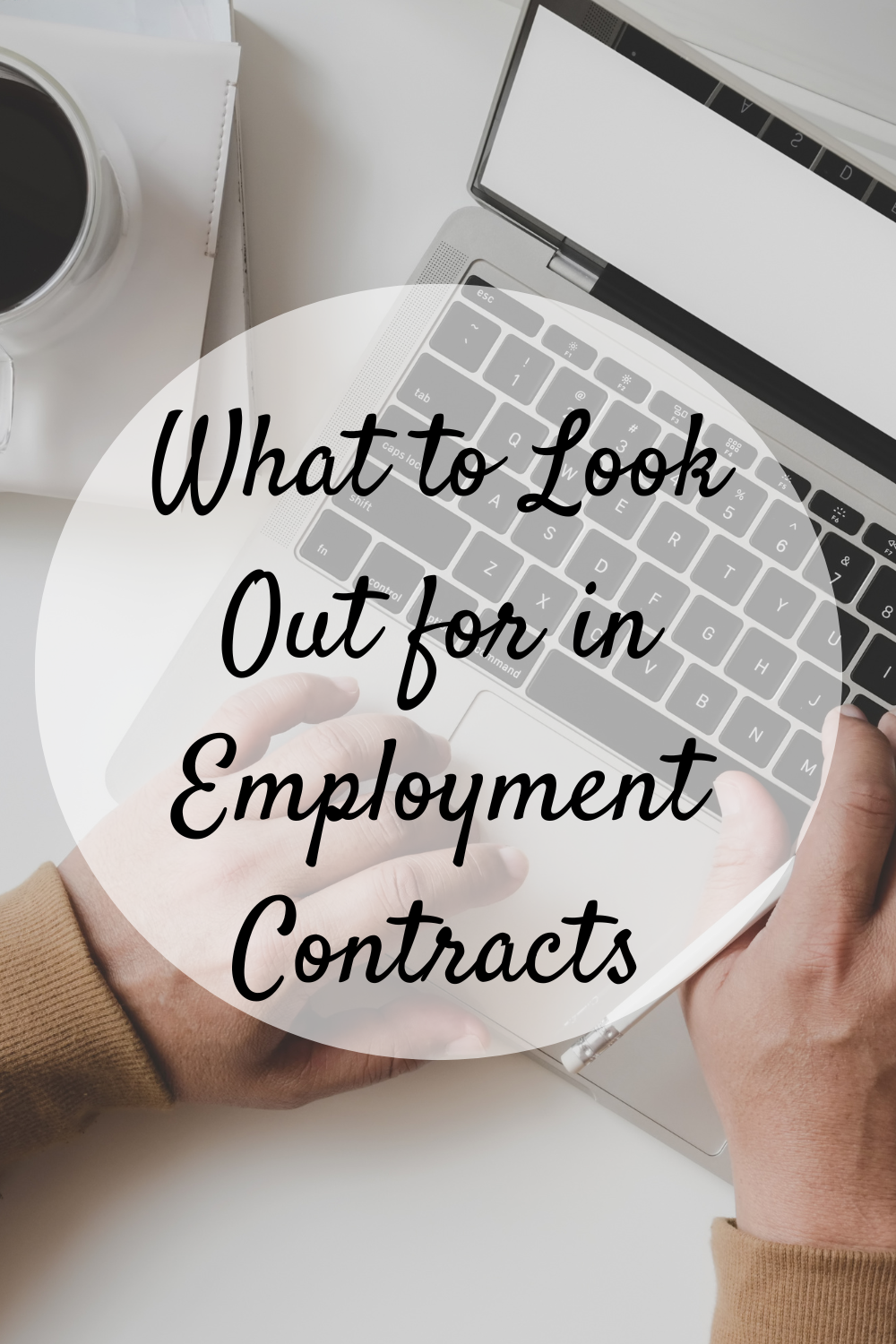
Navigating employment contracts can be complex and may leave employees uncertain of their rights and responsibilities. Stevens & Associates aims to demystify this process, providing comprehensive insights on what to look out for in employment contracts. Not only does this guide help to safeguard employee interests, but it also promotes a harmonious work relationship and helps employees make well-informed decisions concerning their professional trajectory.
Key Takeaways
- Scrutinize all clauses for rights and duties impact.
- Clarify uncertain terms and discuss concerns.
- Understand probation’s purpose, duration, and expectations.
- Distinguish between ongoing and fixed-term contracts for security.
- Review disciplinary, termination, and restraint clauses meticulously.
Pre-Signing Considerations
Before signing an employment contract, it’s crucial to thoroughly review the terms, identify any unclear points, and discuss them with your employer for alignment with the initial job offer. It’s essential to meticulously scrutinize the contract to ensure all terms are clearly defined and understood. Pay close attention to clauses related to job responsibilities, compensation, benefits, working hours, and any probationary period.
If there are discrepancies between the contract and the initial offer, address them promptly with your employer to reach a mutual understanding. Remember, this document will govern your employment relationship. Thus, it’s crucial to clarify any uncertainties before signing to avoid potential issues in the future.
Probation Period
During the probation period, it’s crucial to understand the purpose and implications of this initial phase of employment. Question any extended probation periods and ensure you’re aware of the rights held by both parties during this time.
Shorter probation periods typically offer quicker job security confirmation, so evaluate the length specified in the contract carefully. Consider how this period aligns with your career goals and stability.
Understanding the expectations and performance standards expected of you during probation is essential. Be aware of any probation review processes and feedback mechanisms in place. Utilize this time to demonstrate your capabilities and fit within the organization while also assessing if the role meets your expectations.
Employment Type
Evaluate the distinction between ongoing and fixed-term contracts to determine the impact on your job security and career trajectory. When considering your employment type, it’s crucial to weigh the following factors:
- Job Security: Ongoing contracts typically offer more stability compared to fixed-term agreements.
- Reapplication Frequency: Ongoing roles eliminate the need for frequent job reapplications.
- Career Stability: Assess how each contract type aligns with your long-term career goals and aspirations.
Understanding these aspects will help you make an informed decision that aligns with your professional objectives and personal preferences.
Disciplinary and Termination Clauses
Upon reviewing the employment contract, carefully analyze the disciplinary procedures outlined to ensure fair treatment in case of any misconduct or poor performance. Understand the termination requirements and notice period specified in the contract. Check for compliance with legal minimum notice periods and ensure any relevant Awards or legal requirements are referenced.
Disciplinary clauses should outline clear steps and consequences for misconduct, allowing you to comprehend the process in case of any issues. Termination clauses should specify reasons for termination, notice periods, and any severance packages. Scrutinize the language used to ensure fairness and transparency in the event of termination. Seek clarification on any ambiguous terms to protect your rights and job security.
Restraint of Trade
Ensure you thoroughly review your employment contract for any post-employment restrictions related to Restraint of Trade clauses. Restraint of Trade clauses can significantly impact your future job opportunities and career growth.
When evaluating these clauses, consider the following:
- Legal Implications: Understand the legal complexities and implications of Restraint of Trade clauses.
- Reasonableness: Evaluate the reasonableness of the restrictions imposed by the clause.
- Seek Legal Advice: If the clause seems unreasonable or overly restrictive, seek legal advice to understand your rights and options.
Being aware of these factors will help you make informed decisions regarding the Restraint of Trade clauses in your employment contract.
Conclusion
In conclusion, when reviewing your employment contract, pay close attention to the probation period, employment type, disciplinary and termination clauses, and restraint of trade provisions.
These key considerations can have a significant impact on your career and rights as an employee.
By taking the time to carefully evaluate and understand the terms of your contract, you can ensure that you’re entering into a fair and favorable agreement that sets you up for success in your professional journey.





Leave a Reply